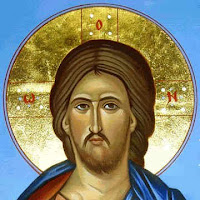Bishop of the Episcopal Diocese of Rochester Issues Inhibition Against Rector of Embattled Church
January 26, 2006
FOR IMMEDIATE RELEASE
Contact:: Raymond J. Dague 315-422-2052
http://www.DagueLaw.com
The Rt. Rev. Jack McKelvey, Bishop of the Episcopal Diocese of Rochester, with approval of the diocesan Standing Committee, today inhibited the Rev. David Harnish, Rector of All Saints, Rochester, charging the priest with “abandonment of communion.” The inhibition attempts to prevent Father Harnish from fulfilling his role and “priestly functions” as rector of All Saints, but it is unenforceable as Father Harnish is currently under the jurisdictional authority of the Anglican province of Uganda, and not under the Diocese of Rochester.
“The Bishop’s action is a little like a nasty employer who claims to be firing an employee after that employee quit last year to work for another company where he would be treated better,” said Raymond Dague, the attorney for the parish. “A priest works for his parish, and not the bishop, but the idea is the similar.”
Bishop McKelvey’s actions follow a trend in dioceses across the country in which revisionist bishops misapply and abuse canon law in order to take disciplinary action against clergy who oppose their revisionism. The charge of “abandonment of communion” is a church law provision applicable in cases of clergy who leave the Episcopal Church to join a different denomination or religion, and a step usually accompanied by a renunciation of their Episcopal ordination vows. Serving under the Anglican Church of Uganda, Father Harnish remains a priest in good standing within the Anglican Communion anywhere in the world. In declaring Father Harnish out of communion with the Diocese of Rochester, Bishop McKelvey and the Standing Committee appear to be declaring themselves out of communion with Uganda.
Bishop McKelvey’s inhibition of Father Harnish is the latest punitive action the diocese has directed toward All Saints and their rector. During the diocesan convention November 18-19, 2005, delegates voted to declare All Saints Episcopal Church “extinct.” In so doing, the diocese violated both its canon [church] law and a New York statute.
Canon 13 of the Diocese of Rochester provides for a parish to be declared extinct if and when “it shall appear to the Bishop and the Council that a congregation organized as a parish has ceased to fulfill the requirements under the Religious and Corporations Law of the State of New York…”. The religious corporations law outlines clear criteria for determining whether or not a church can be declared extinct: the church has failed to maintain services for two consecutive years. The statutes specify an additional criteria for Episcopal parishes to be declared extinct: when they have an insufficient number of individuals qualified to serve on the vestry [church board] for two consecutive years. All Saints in Rochester has maintained continuous religious services since it was founded 80 years ago, and held elections last month electing new members to its vestry.
“All Saints is an ongoing parish which in no way meets the requirements of law to be declared extinct,” said Dague. “The bishop has abused his power and run roughshod over canon and civil law in his attempt to destroy a biblically faithful congregation.”
The Episcopal Church is currently recognized as a member of the Anglican Communion, but that status is threatened given the current crisis within the Anglican Communion. Twenty-two of 38 primates have declared broken or impaired communion with the Episcopal Church of the United States of America (ECUSA), and the vast majority of the Communion believes ECUSA has abandoned the faith and practice of Anglicanism as well as historic Christian teaching.


0 Comments:
Post a Comment
<< Home